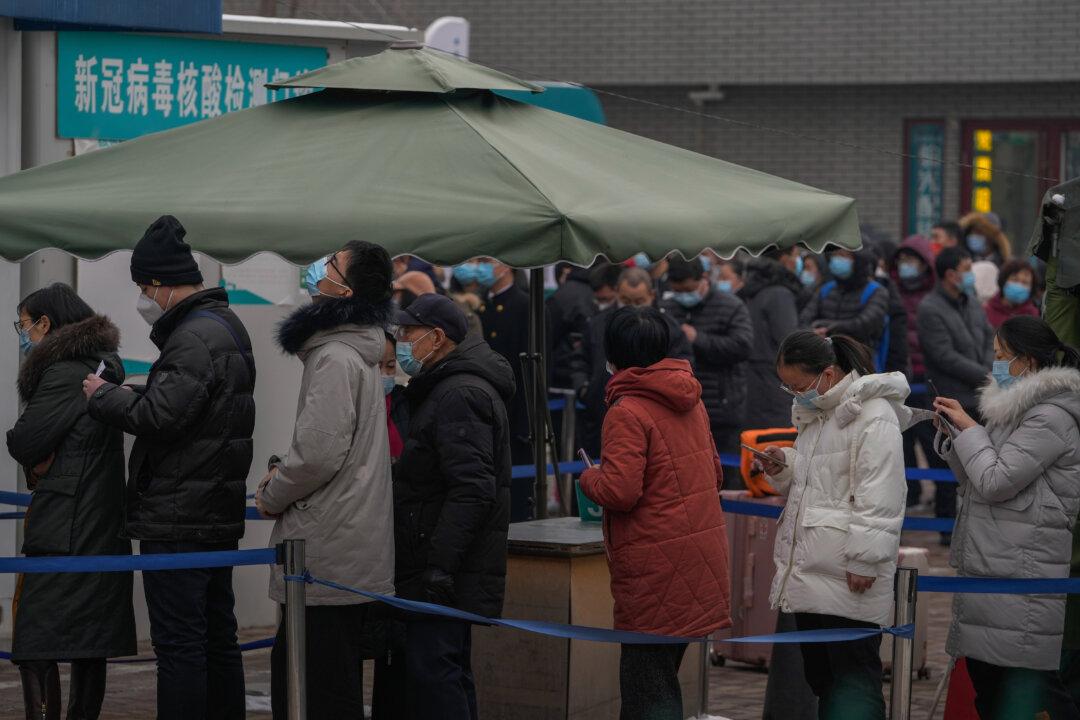Beijing on Jan. 23 introduced new COVID-19 measures as it faces a “severe and complicated” battle to contain the virus less than two weeks before the opening of the Winter Olympic Games.
After identifying a handful of positive cases in the district of Fengtai, officials have organized nucleic acid tests for the district’s 2 million residents, starting from 6 a.m. on Sunday, district health authorities said. The testing will be completed in one day, officials added.




